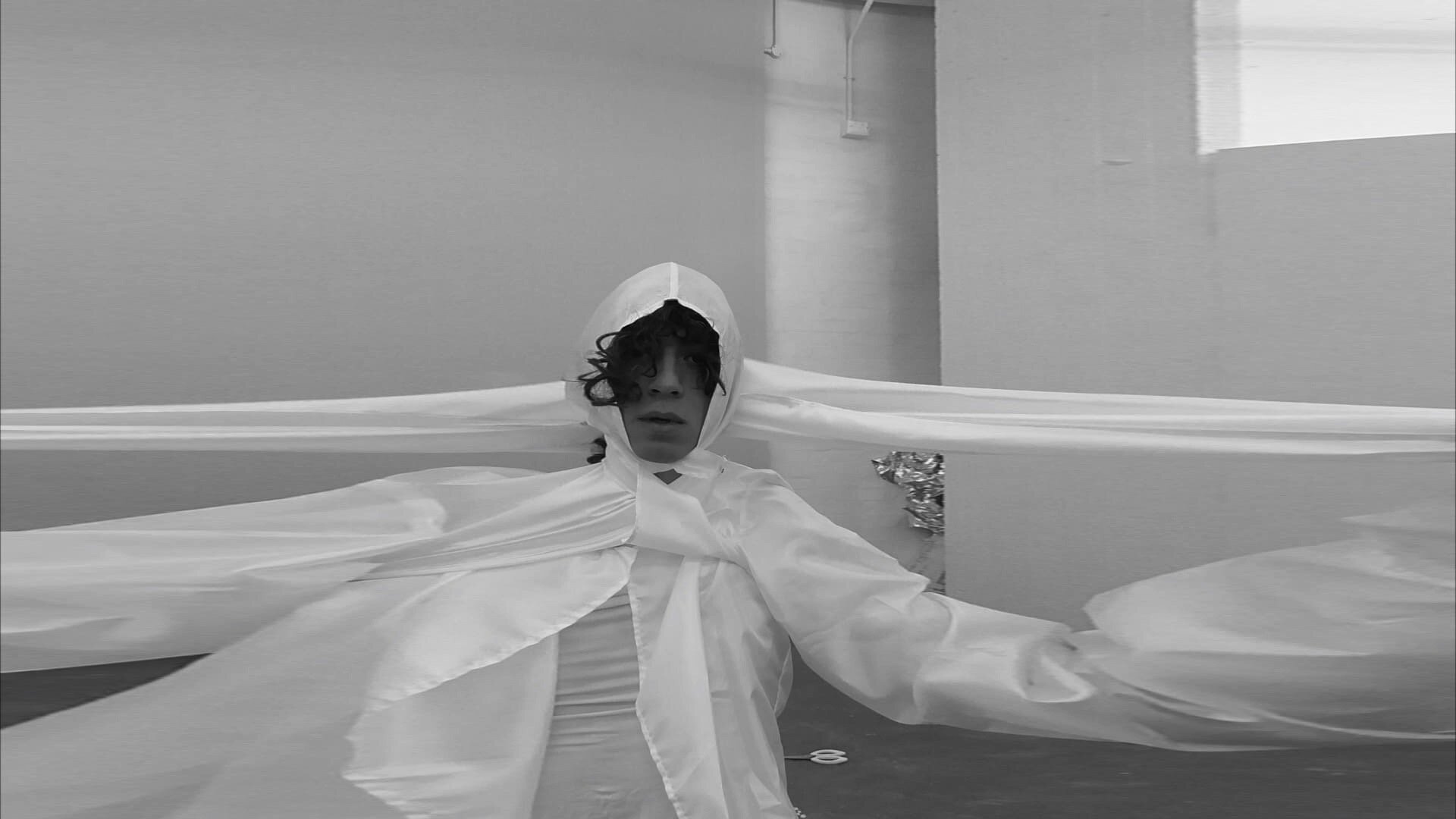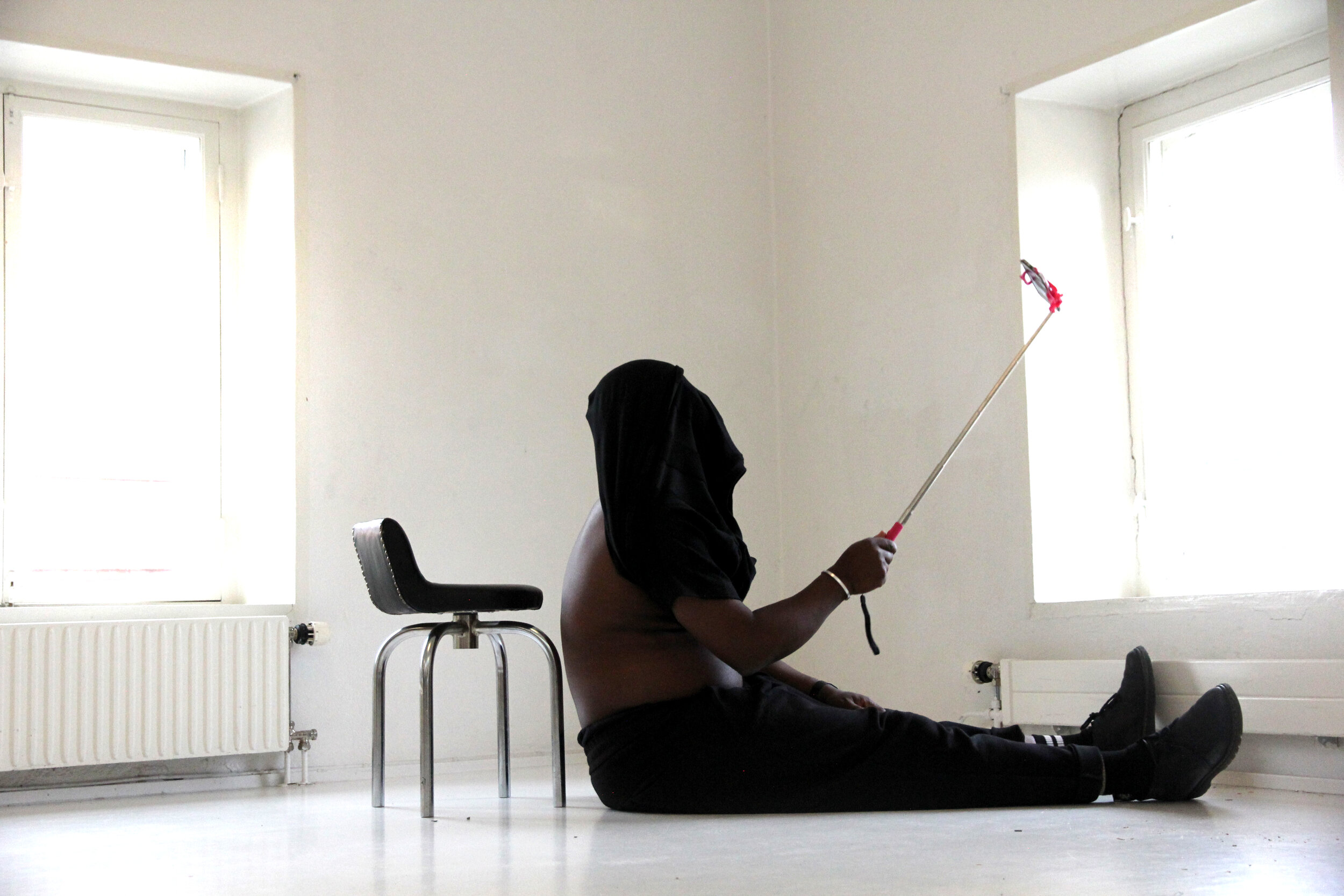RCA Satellite
Wednesday, September 23, 2021, 17:00 BST
“RCA Satellite” showcases both the Royal College of Art tutors and recent graduates who performed in the RCA 2020 and 2021 online degree shows and at the RCA 2021 satellite exhibitions at the Cromwell Place in London.
Featuring Artists:
Farvash (@farvash)
Araceli Gómez Castro (@araceli.gomezcastro)
Lulu Wang (@lulu_wangyx)
Alejandro Villa Duran (@alejandrovilladuran)
Rieko Whitfield (@riekowhitfield)
Julita Mahrer (@julitachulita)
Paola Estrella (@py_star)
Harold Offeh (@harold_offeh)
Farvash, (b. 1982 Tehran) is a research-based artist using performance, fiction and technology to explore self-censorship concealment as a survival strategy. Through art, she builds systems to investigate questions around constructed identity, immigration guilt, and trauma of war.
Araceli Gómez Castro (b. 1994) is an artist based in London and Mexico City. This body of work is composed of sculptures -as a result of hypersensual and analytical object-making-, anti-system witchcraft -also known as White Magic-, performance auto-ethnography and collective experiences. “I support this notion of White Magic because is the one my father and the collective GFU use; being a fluid mixture of informed inter-local theoretical frameworks and indigenous community knowledge in Abya Yala.” Over the last decade, collaborating with a broad range of artists, visual arts organizations, inter-local institutions, community projects, spiritual-based groups, delegations of boroughs, thematic commissions, among others. With the objective of maximizing the impact of projects with activist goals.
Lulu Wang performs with traces of the body in motion, developing her understanding of symbiotic relationships between the familiar and the alien. Her “research in action” engages with the Chinese cosmology of Yin Yang, seeking the balance between human and non-human. Her practice, especially that of trance-like trace-making, further articulates her relationship with the physical body through live performances and videos.
Alejandro's work is an alchemical exploration of the surroundings. His methodology, personal and autobiographical, assumes risks of intuition and a discipline. The chemical processes of the body, articulate form in the work. The abstinence and fasting rites, as well as the auto-observation, conform the dynamics of detachment and potency, that is to say, how far can the body go when this is empty and eventually discover the power to be, like an anthology.
Julita (Julia Mahrer Vinas) is a Swiss-Dominican artist and art director with a background in advertising, curation and experimental communication. Her practice expands on the interpretation of universal truths, contemporary dating culture, intimacy in the public sphere and, lately, the paradigms of decolonial love. She is currently Lecturer at The Royal College of Art and in the Caribbean. Julita’s practice takes form of large scale text based public installations, ritualistic artefacts, occasionally performance, spoken poetry, analog sound. Her late research project “Paraiso Personal” is a deep introspective analysis of algorithmic tendencies within the effects of dominican society (heart of colonisation), pop melancholy, sunsets and contemporary post-colonial ancestral awakening. Medias include analog/ accessible radios, cameras, objects. Weather conditions may affect and destroy the artwork.
Rieko Whitfield’s tentacular practice encompasses propositional world-building through both speculative mythology and community organising. Her storytelling decentres narratives of Western, capitalist individualism toward beyond-human collectivism.
Auto-fiction, magic realism, and story-telling are central to Paola Estrella’s work which involves self-reflection, collaboration with other creators, and worldbuilding. Her multimedia practice combines mixed media, video, and performance, which often results in video installations. She describes her projects as portals that allow her to imagine and exteriorise different possibilities that relate to multiple ways of existence and of understanding reality, which arise from questioning social and political notions about gender, the body, and how we connect with one another.
Harold Offeh is an artist working in a range of media including performance, video, photography, learning and social arts practice. Offeh is interested in the space created by the inhabiting or embodying of histories. He employs humour as a means to confront the viewer with historical narratives and contemporary culture. He lives in Cambridge and works in London and Leeds, UK where he is currently a tutor in Contemporary Art Practice at the Royal College of Art.








